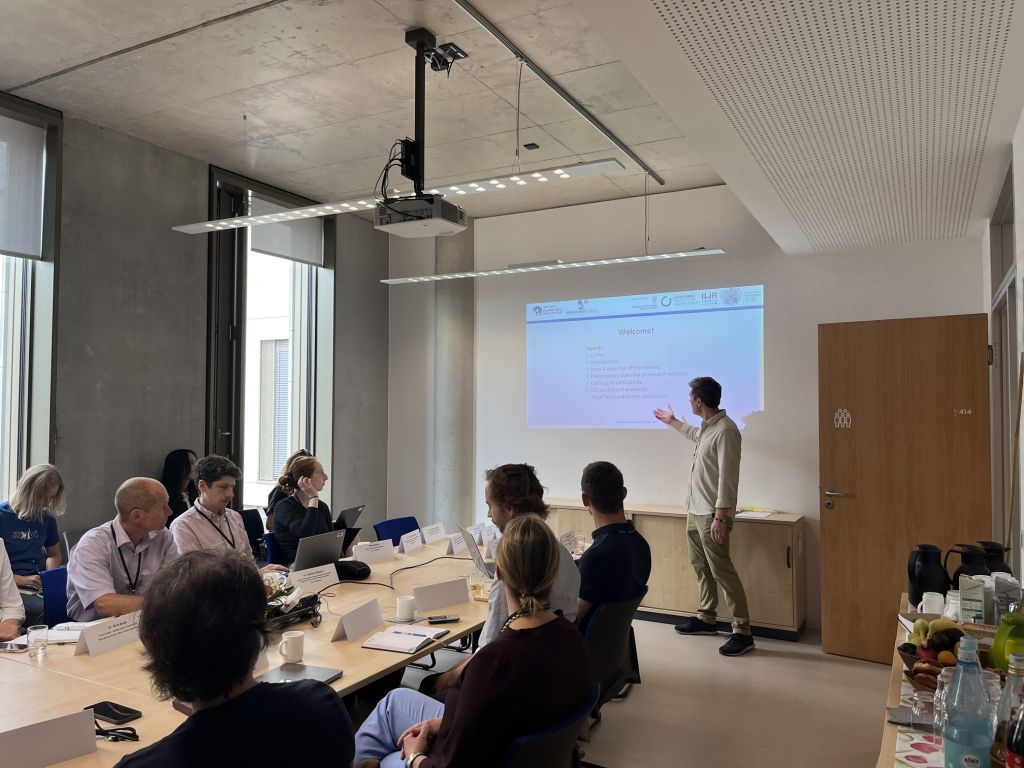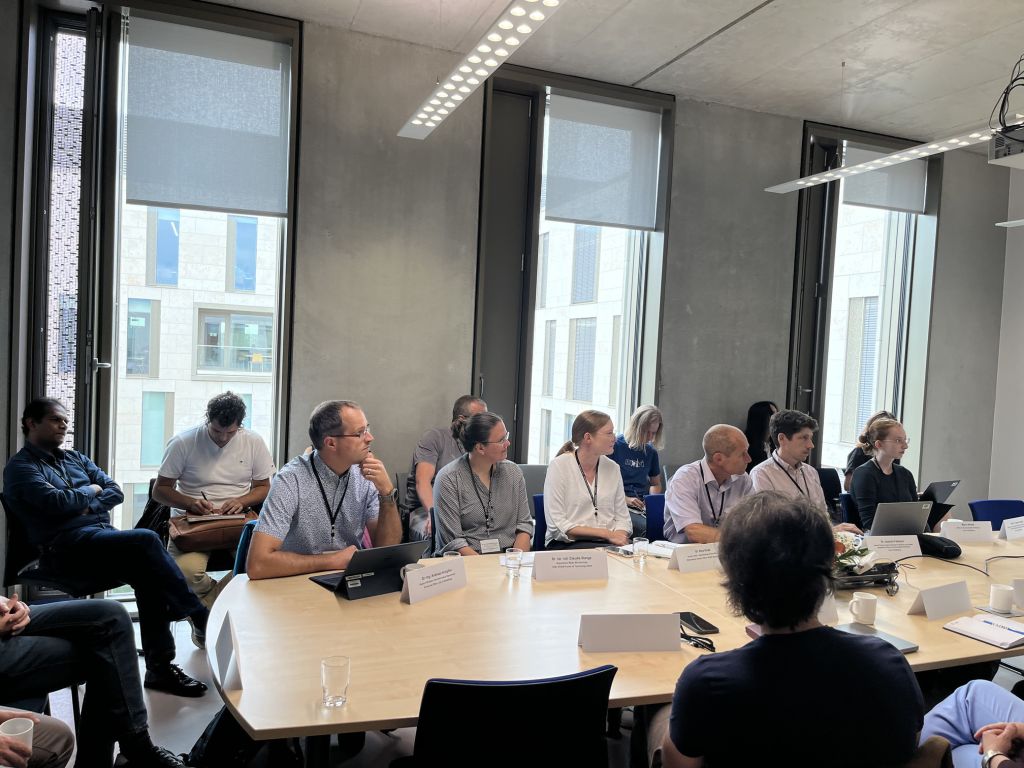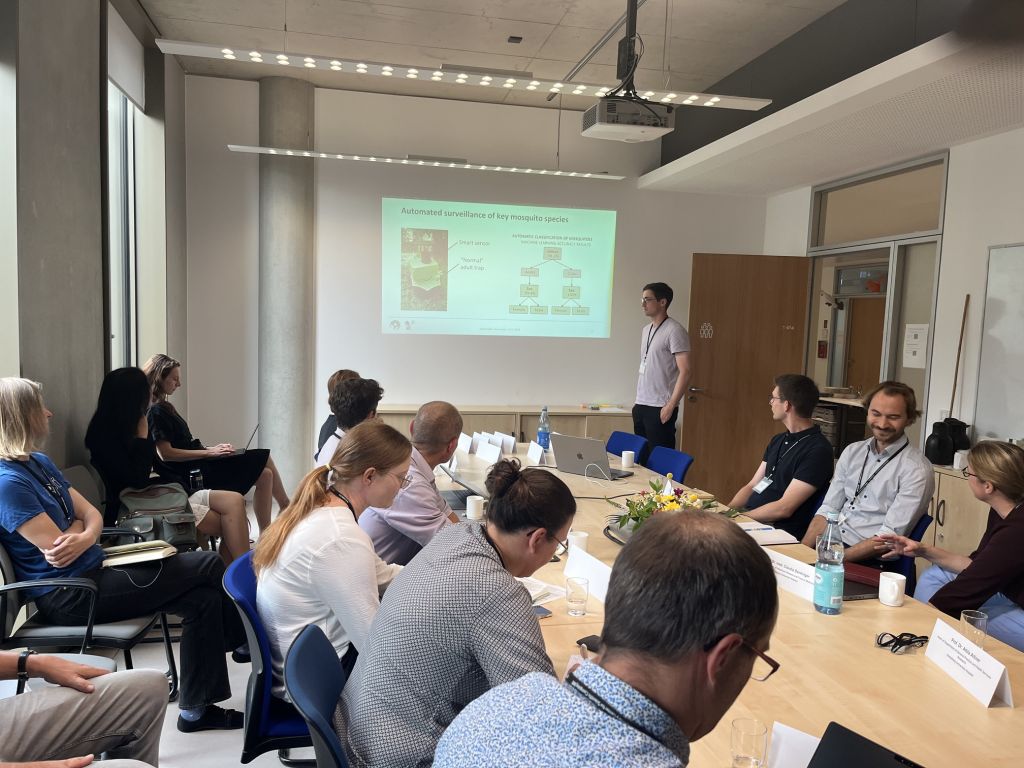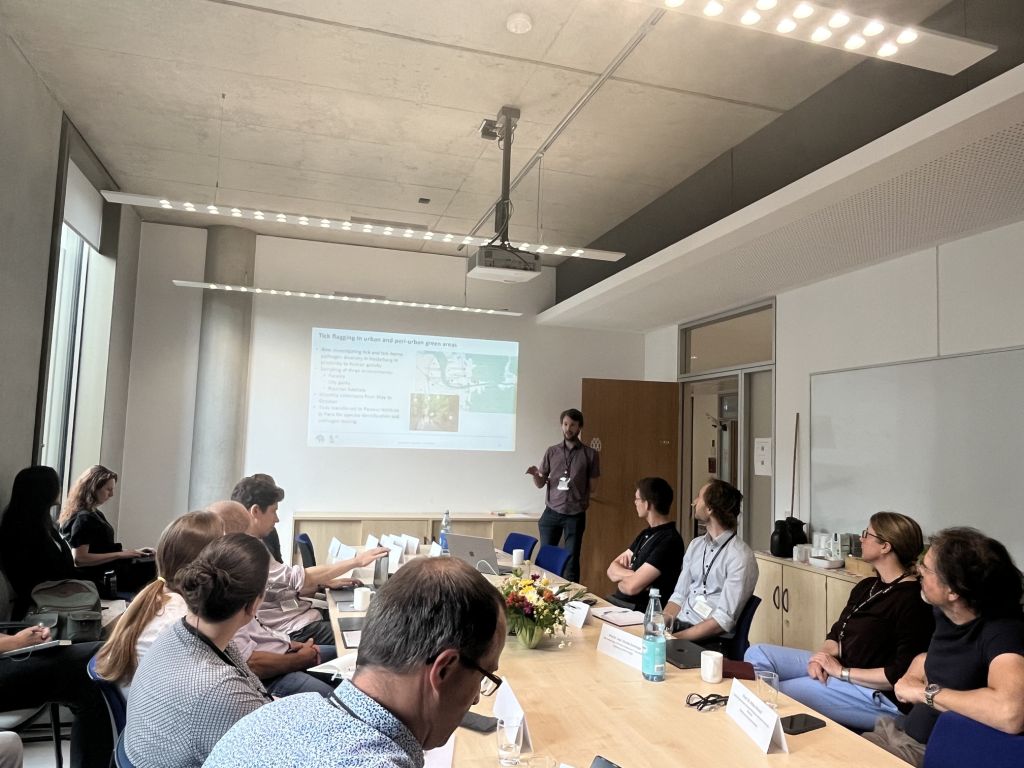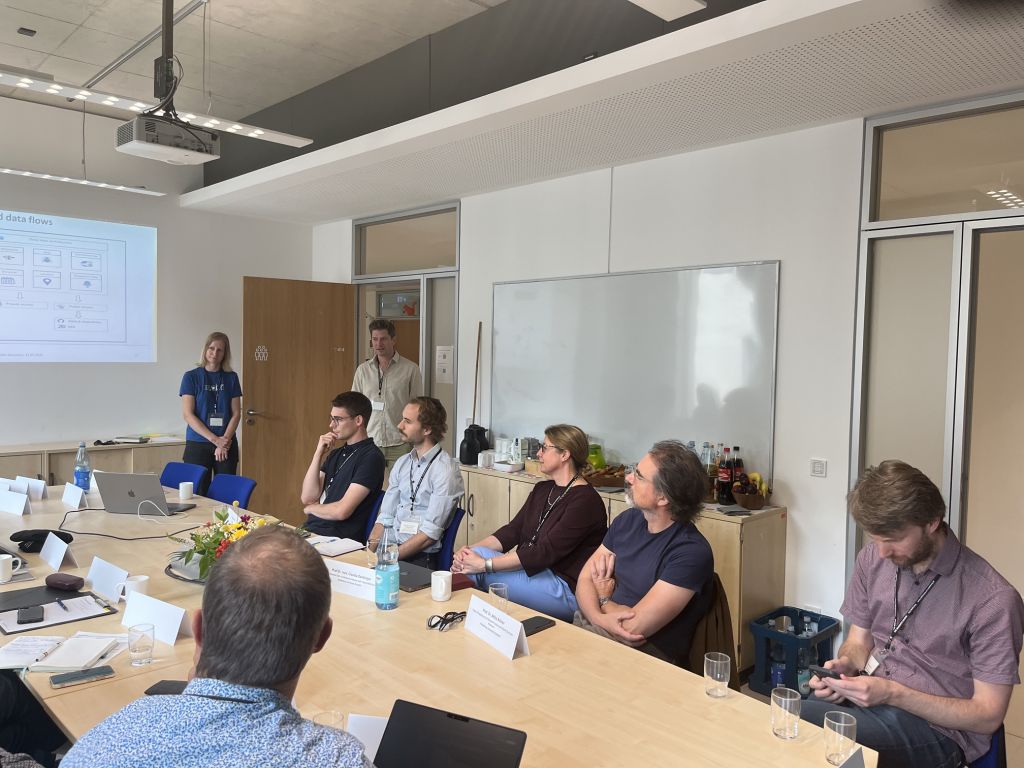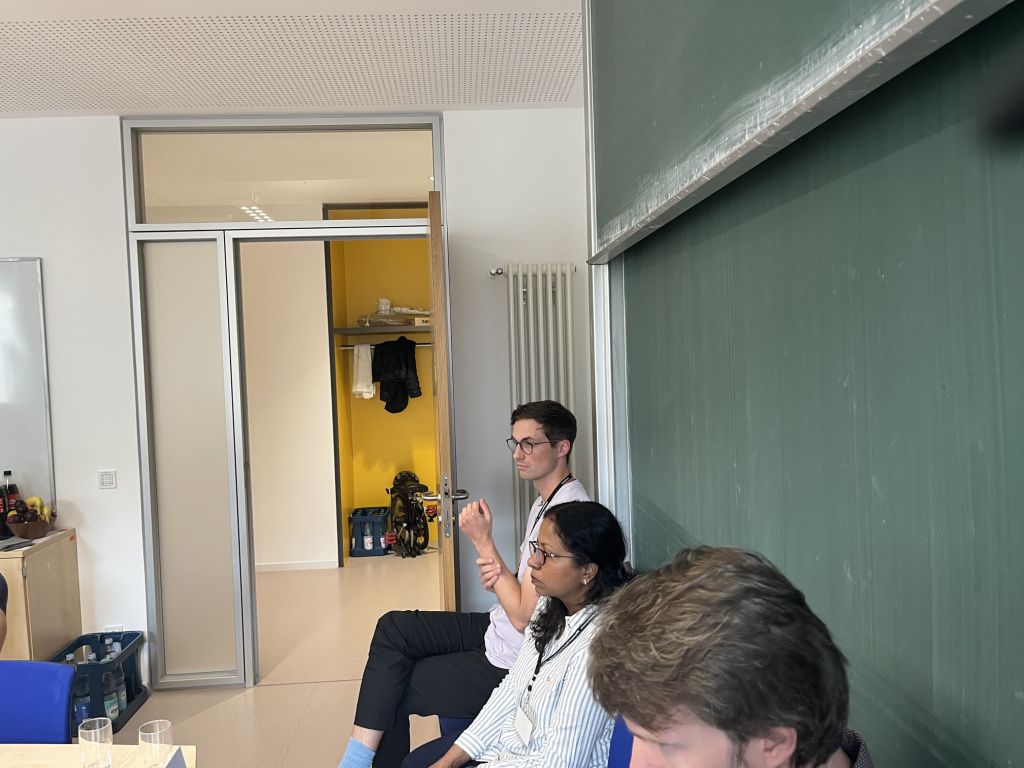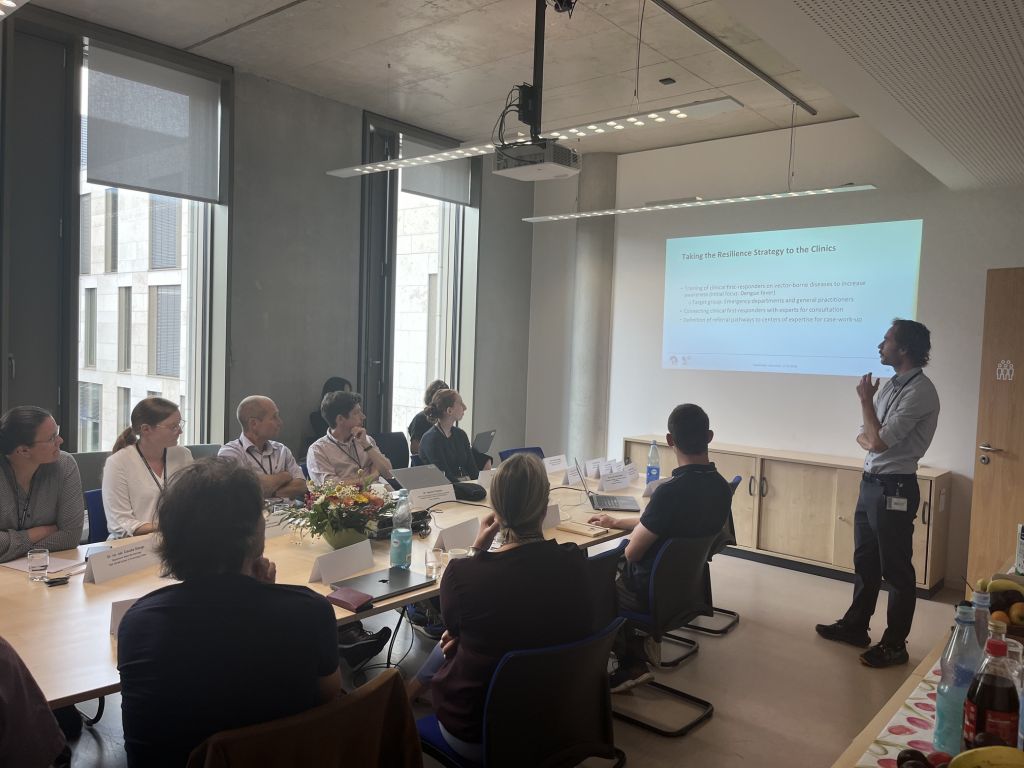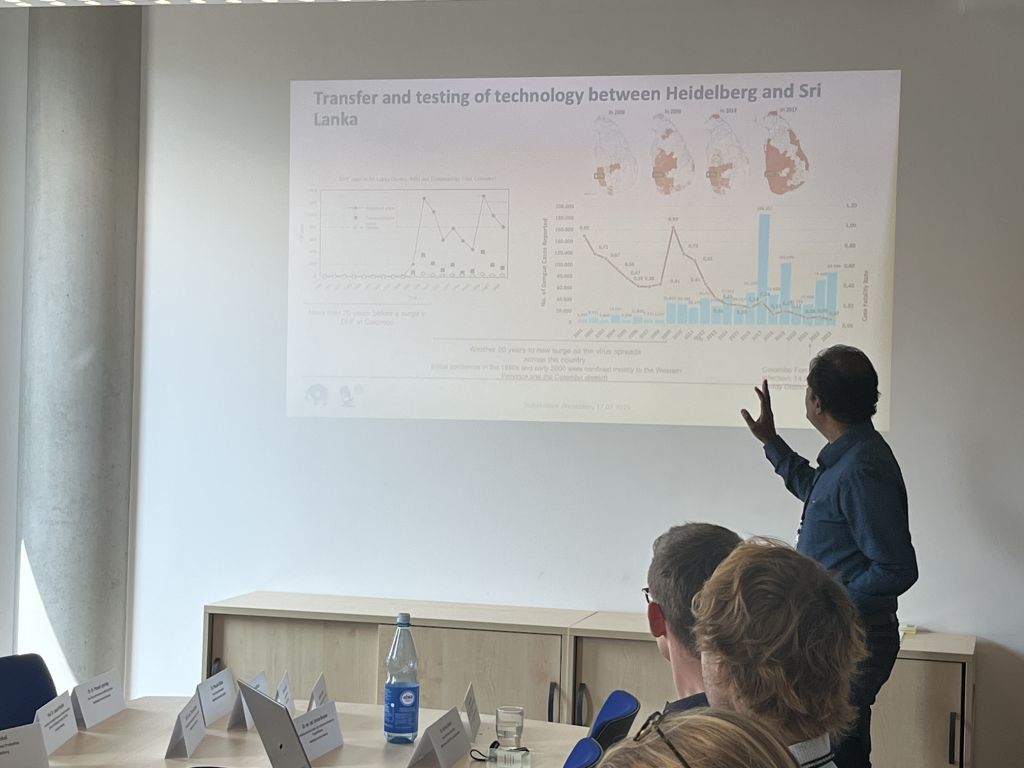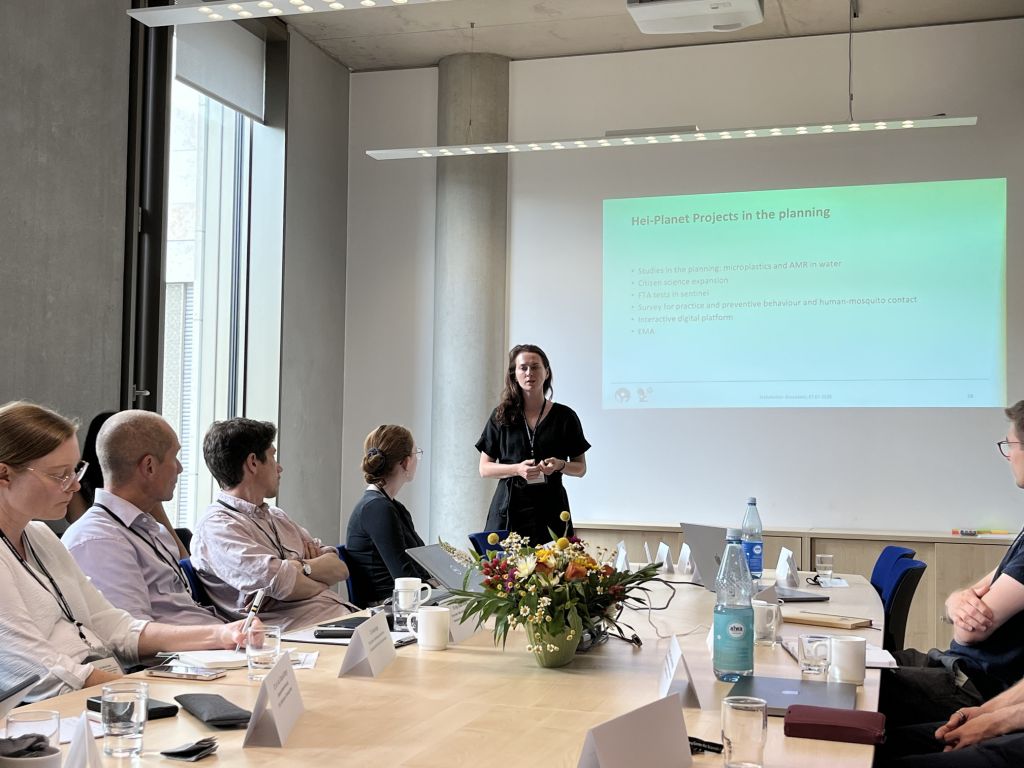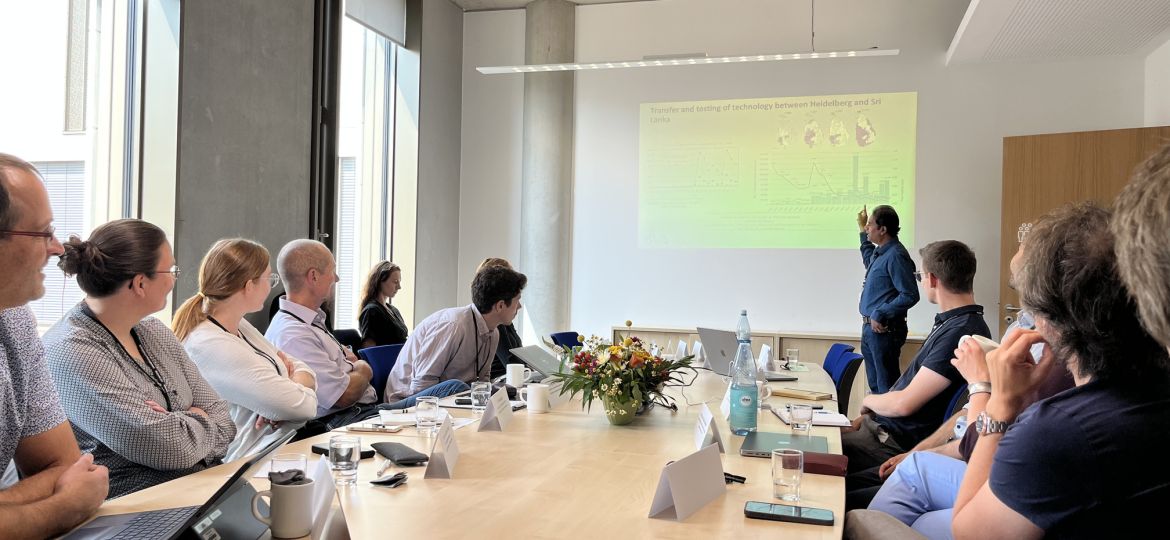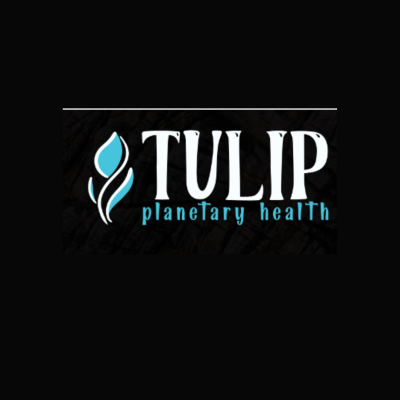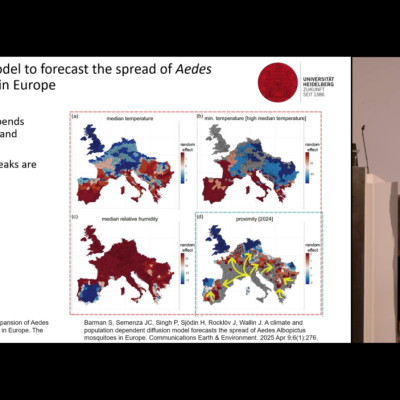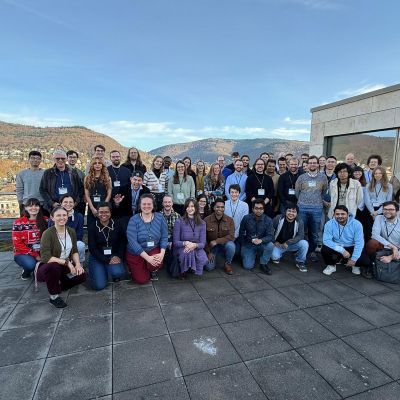Leading experts and regional stakeholders convened at the Interdisciplinary Center for Scientific Computing (IWR) – Hei-Planet, Heidelberg University on July 17, 2025 —for a high-level meeting on the intersection of environmental and public health challenges in the Rhein-Neckar region. The meeting was co-led by Prof. Joacim Rocklöv (Heidelberg Planetary Health Hub) and Prof. Claudia Denkinger (Global Dx Hub & medical director, Department of Infectious and Tropical Medicine, Heidelberg University Hospital).
Participants included representatives from the Rhine-Neckar District Office Health Department, the Office for Environmental Protection, Trade Supervision and Energy, the City of Heidelberg, the Ministry of Social Affairs, Health and Integration Baden-Württemberg, the State Health Office, Zoo Heidelberg, the Institute for Dipterology, the Heidelberg Institute of Global Health, Charité – Universitätsmedizin Berlin, and the Ministry of Health, Sri Lanka.
Discussions focused on the current situation of vector-borne diseases in the region, particularly mosquito-borne diseases such as dengue, chikungunya, and West Nile virus, and tick-borne diseases including tick-borne encephalitis (TBE). The role of reservoir and carrier animals, such as birds, bats, and other mammals, was also considered in assessing regional vulnerability. Future outbreak scenarios and regional preparedness strategies were actively explored.
Research teams from the Rocklöv and Denkinger groups shared their ongoing and planned work and related recent scientific findings on the links between climate change and emerging infectious diseases in Europe and beyond. Key topics included novel data streams to identify environmental drivers, climate-informed disease modelling, point-of-care surveillance tools, and risk mapping to support public health decision-making. Strengthening local surveillance networks and establishing early-warning systems emerged as central priorities.
A key highlight of the meeting was the introduction of novel surveillance systems designed to harness new data streams to track vector and pathogen prevalence, identify environmental drivers of disease, apply climate-informed modelling to anticipate outbreaks, deploy innovative point-of-care surveillance tools, strengthen health systems, build the capacity of first-line general practitioners, and use advanced risk mapping to guide public health decisions. Strengthening local surveillance systems and developing robust early-warning mechanisms were identified as top priorities.
Stakeholders also explored opportunities for collaborative data sharing, coordinated resource use, and integrated environmental–health monitoring to advance a One Health framework for the region.
The meeting concluded with a commitment to continue dialogue and joint planning. Follow-up sessions will be convened to formalize partnerships and develop an interdisciplinary strategy for improving regional preparedness and response capacity.
Image Gallery
